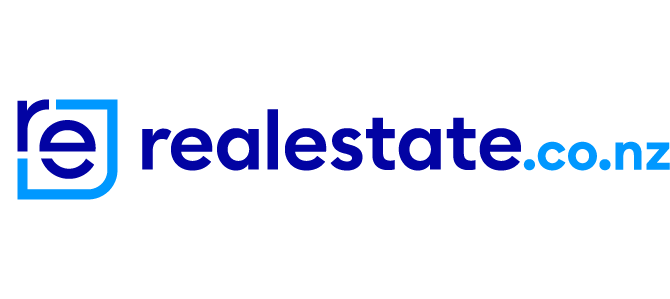For property buyers, the recent introduction debt-to-income (DTI) ratios means lenders will compare the total amount of debt you have, to your income before approving your mortgage or loan.
Starting 1 July, the Reserve Bank of New Zealand's new debt-to-income (DTI) ratios change the game for property buyers, capping borrowing at six times household income (for owner occupiers) to curb excessive debt and enhance financial stability.
For property investors, borrowing is capped at seven times your income. However, analysis of average asking prices over the last 12 months reveals significant variations in the household income required to buy a home across the Motu.
Based on our 12-month national average asking price of $902,988, property seekers will need a household income of $120,398. Assuming a 20% deposit, this is calculated by dividing the total loan amount of $722,390 by six, per the new DTI regulations. This $120,398 is just $6,0411 less than the average annual household gross income of $126,411.
However, in many regions of New Zealand, the significant gap between household incomes and what will be required under the new DTI regulations is likely to be challenging.
How will these new DTI ratios impact Kiwis across the country? Which districts will be hardest hit, and will any be immune to the changes?
Location, location, location
Queenstown was the most expensive district in which to buy property, with a 12-month average asking price of $1,953,091. Under new DTI requirements, property seekers wanting to borrow the full 80% on property in this region would need a minimum household income of $260,412. Waiheke Island followed with an average price tag of $1,901,507, requiring an income of $253,534. Wanaka, Rodney and North Shore City rounded out the top five, needing incomes between $175,544 and $245,381.
Vanessa Williams, spokesperson for realestate.co.nz, attributes the high prices to lifestyle appeal:
"These districts offer a blend of urban and rural lifestyle options and, in most cases, are an easy boat ride, flight, or drive to our main commercial hub of Auckland.”
City of sails…and sky-high property prices?
It’s not just Waiheke Island, Rodney and North Shore City where households need high incomes. Auckland City and Hauraki Gulf Islands were just shy of the top five most expensive regions, requiring minimum incomes of $171,447 and $167,076, respectively, “With beautiful golden sand beaches, inner-city living, and café culture, lifestyle is a significant drawcard. Ultimately, buying a property is not about choosing a home; it’s about choosing the life you want to lead.”
Papakura, Waitakere City, Manukau City & Franklin are the only four of nine Auckland districts where the minimum required income fits within Auckland’s annual gross income. Based on having a 20% deposit, property seekers will need a minimum household income of $108,796 in Papakura, $119,841 in Waitakere City, $132,111 in Manukau City, and $139,480 in Franklin. These all sit below the Statistics New Zealand reported annual gross income of $153,159 for Auckland for the year ending June 2023.
Vanessa notes that individual circumstances will vary: “Opportunities can be found in every market. Property seekers need to be patient, consider their expectations, and seek advice from their local real estate agent.”
She also notes that these regulations apply to household income; therefore, purchasing via a syndicate or as a couple could offer more opportunities.
New Zealand’s lowest-cost regions
Prices vary significantly across regions due to factors such as local economic conditions, population density, and demand for housing. At the affordable end of the spectrum, Bay of Plenty’s Kawerau was the lowest-cost district, with a 12-month average asking price of $432,604. To meet DTI ratio requirements and borrow 80%, an income of $57,681 per annum is required. With average asking prices around $450,000, Grey on the West Coast and Southland’s Gore came in a close second and third, requiring household incomes of around $60,000.
Otago’s Clutha and Canterbury’s Waimate rounded out the bottom five, requiring incomes of around $65,000 to secure a property based on average asking prices in the districts.
"According to Statistics New Zealand, the average household income in the Otago region is $109,943 and in Canterbury it is $114,961. Buyers in these regions may have more flexibility to go up a price bracket.”
“Like the rest of the country, average asking prices in both regions have remained fairly flat for the last 18 months,” explains Vanessa.
Should we expect a slowdown from 1 July?
The new regulations may reduce the number of buyers by limiting their options. However, with high interest rates, Vanessa doesn’t expect DTI ratios to start biting immediately.
“Some Kiwis are unable to enter the market currently due to high interest rates, and that will likely continue to be the case.”
“The idea of DTI ratios is to slow down the market and, ultimately, help prevent people from getting into unmanageable debt, which isn’t necessarily a bad thing. We will have to wait and see what impact this has overall.”
Curious if your income stacks up against average asking prices in your region? Check out the table below:



For media enquiries, please contact:
Liz Studholme | liz@realestate.co.nz
Want more property insights?
- Market Insights: Search by suburb to see median sale prices, popular property types and trends over time.
- Sold properties: Switch your search to sold to see the last 12 months of sales and prices.
- Valuations: Get a gauge on property prices by browsing sold residential properties, with latest sale prices and an estimated value in the current market.
Find a glossary of terms here.
02 Jul 2024

